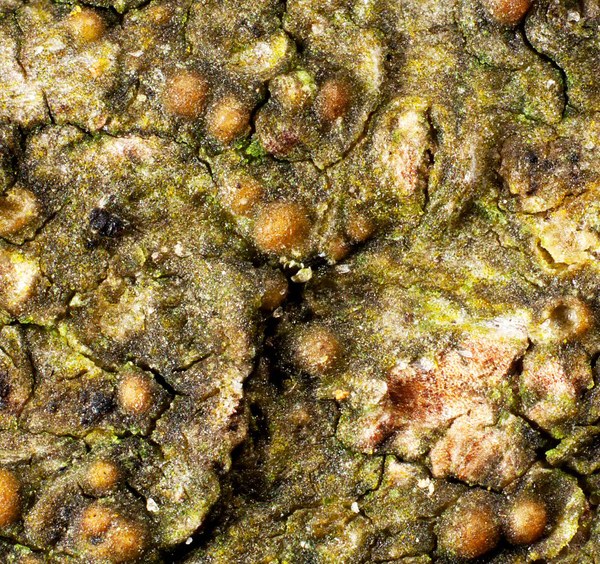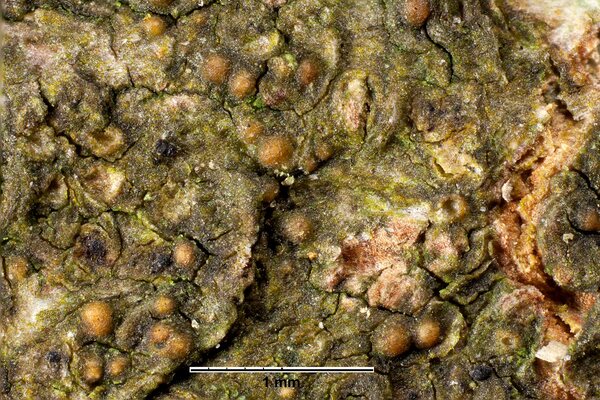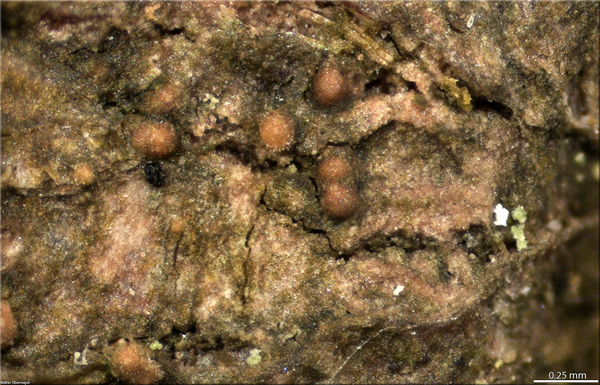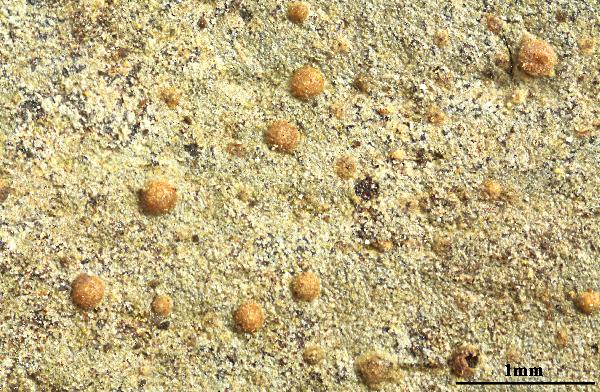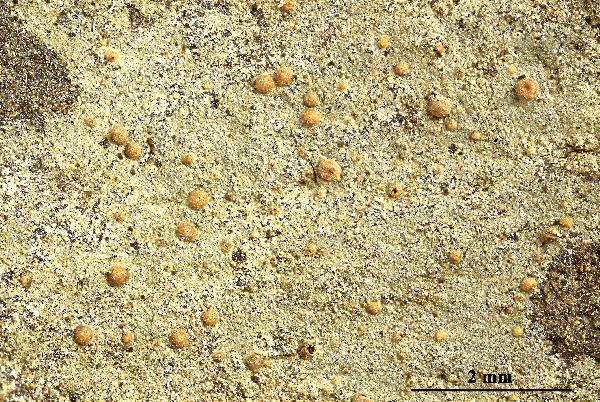Porina leptalea (Durieu & Mont.) A.L. Sm.
Monogr. Brit. Lich., 2: 333, 1911. Basionym: Biatora leptalea Durieu & Mont. in Durieu - Fl. Algérie Crypt., 1: 268, 1847.
Synonyms: Bacidia micrococcoides Erichsen; Segestria leptalea (Durieu & Mont.) R.C. Harris
Distribution: C - Tosc (Ravera & al. 2020b), S - Camp (Ravera & al. 2021c), Bas (Bartoli & Puntillo 1998), Cal (Puntillo & Vezda 1994, Puntillo 1995, 1996).
Description: Thallus crustose, very thinly episubstratic, smooth and with an oily appearance, rarely finely granular, grey-green to dark olive-green, sometimes inconspicuous. Perithecia 0.2-0.3 mm across, partly immersed, brownish orange. Involucrellum thin, of thick-walled hyphae, containing numerous photobiont cells in lower part, orange-brown, K+ orange (Porina-yellow pigment); exciple hyaline to yellow, composed of several layers of flattened, thin-walled cells; periphyses abundant around the ostiole; paraphyses richly branched and anastomosing, c. 1.5 µm thick; hymenial gel I-, K/I-. Asci 8-spored, clavate-cylindrical, thin-walled throughout, functionally unitunicate, dehiscent by rupture of the apex, with no extruded inner layers and an apical ring structure, I-, K/I-. Ascospores 3-septate, hyaline, subfusiform, 14-25 x 3-5(-6) μm, thin-walled, smooth, biseriately arranged in the asci. Pycnidia pink-orange, c. 0.1 mm across. Conidia ellipsoid to cylindrical, straight or slightly curved, 1.7-2.5 x c. 1 μm. Photobiont trentepohlioid. Spot tests: thallus K-, C-, KC-, P-. Chemistry: thallus without lichen substances.Note: a humid subtropical to Mediterranean-Atlantic lichen found on smooth bark of broad-leaved trees in moist forests, sometimes foliicolous on evergreen trees and shrubs (e.g. on Buxus). It is included in the Italian red list of epiphytic lichens as “Vulnerable” (Nascimbene & al. 2013c).
Growth form: Crustose
Substrata: bark and leaves
Photobiont: Trentepohlia
Reproductive strategy: mainly sexual
Most common in areas with a humid-warm climate (e.g. most of Tyrrenian Italy)
Commonnes-rarity: (info)
Alpine belt: absent
Subalpine belt: absent
Oromediterranean belt: absent
Montane belt: very rare
Submediterranean belt: absent
Padanian area: absent
Humid submediterranean belt: extremely rare
Humid mediterranean belt: extremely rare
Dry mediterranean belt: absent
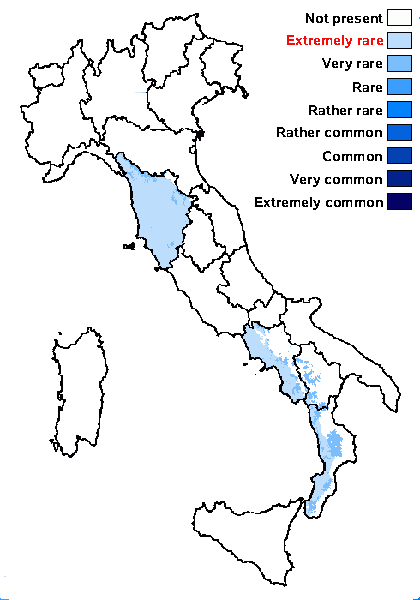
Predictive model
Herbarium samples
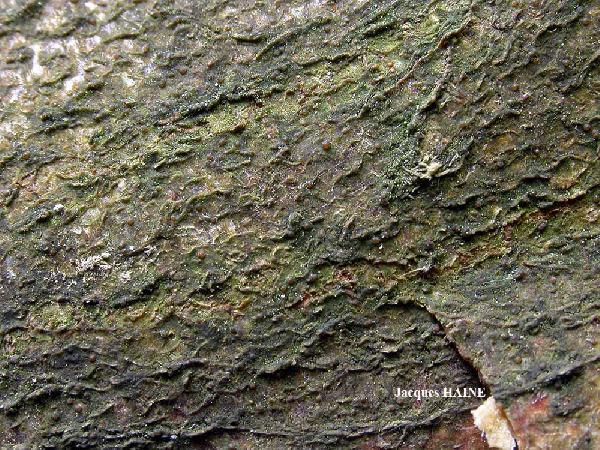
Jacques Haine - Source: http://www.lichensmaritimes.org/index.php?task=fiche&lichen=609&lang=en
France, Ardennes
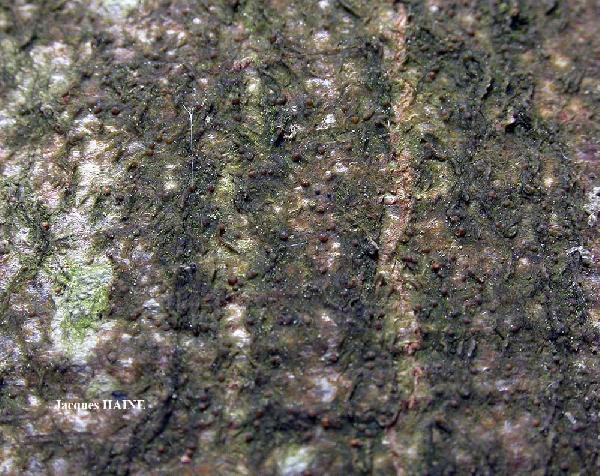
Jacques Haine - Source: http://www.lichensmaritimes.org/index.php?task=fiche&lichen=609&lang=en
France, Ardennes
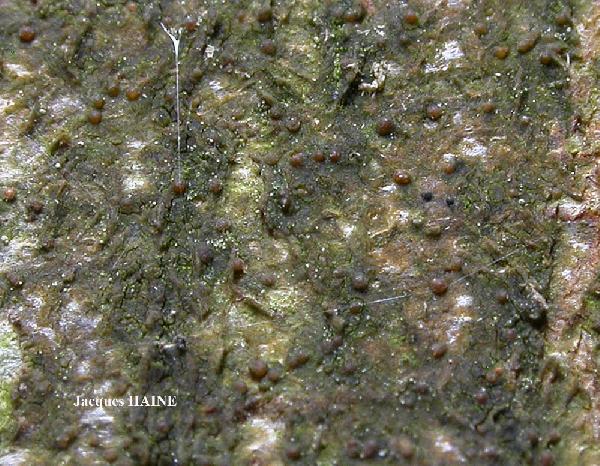
Jacques Haine - Source: http://www.lichensmaritimes.org/index.php?task=fiche&lichen=609&lang=en
France, Ardennes
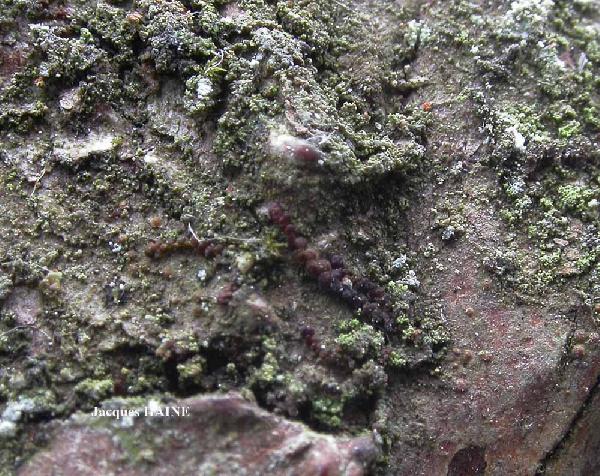
Jacques Haine - Source: http://www.lichensmaritimes.org/index.php?task=fiche&lichen=609&lang=en
France, Ardennes
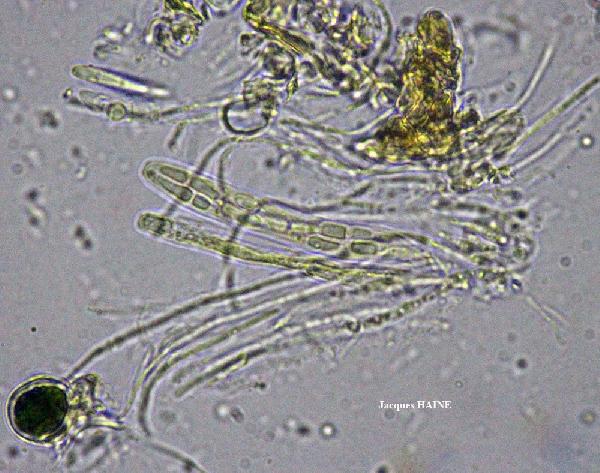
Jacques Haine - Source: http://www.lichensmaritimes.org/index.php?task=fiche&lichen=609&lang=en
France, Ardennes
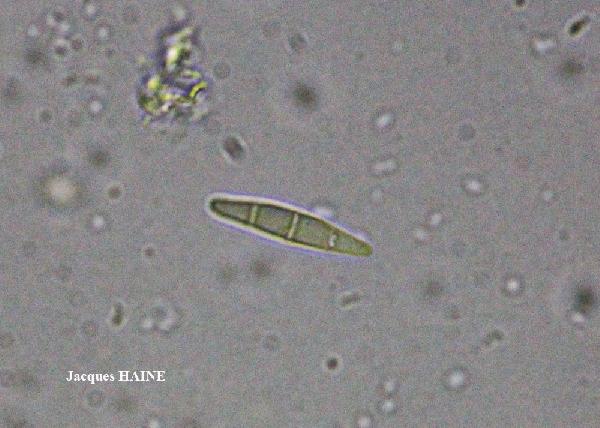
Jacques Haine - Source: http://www.lichensmaritimes.org/index.php?task=fiche&lichen=609&lang=en
France, Ardennes
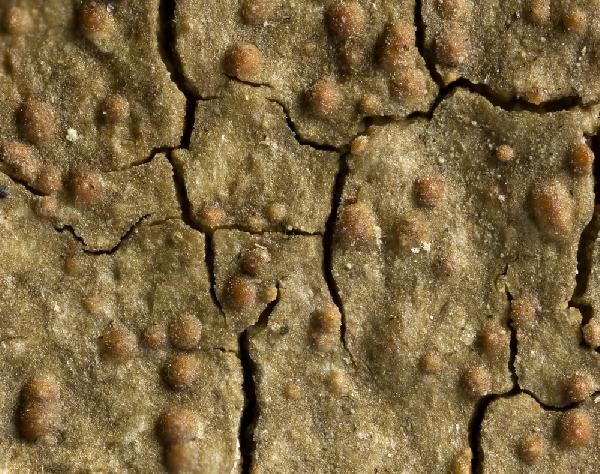
Ulrich Kirschbaum CC BY-SA 4.0 - Source: https://www.thm.de/lse/ulrich-kirschbaum/flechtenbilder
Central Europe: Germany. (Coll/ident: Eichler/Cezanne).
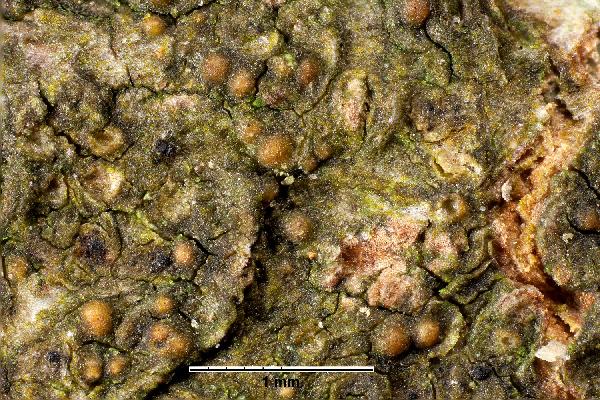
Ulrich Kirschbaum CC BY-SA 4.0 - Source: https://www.thm.de/lse/ulrich-kirschbaum/flechtenbilder
Central Europe: Germany. (Coll/ident: Eichler/Cezanne).

Marta González Garcia - Centro de Estudios Micologicos Asturianos
Spain, Jaizkíbel (Guipúzcoa), 8-VI-2023, sobre plantas de la subfamilia Bambusoideae, leg. R. Pino-Bodas & M. Prieto, det. M. González, MGG-30.
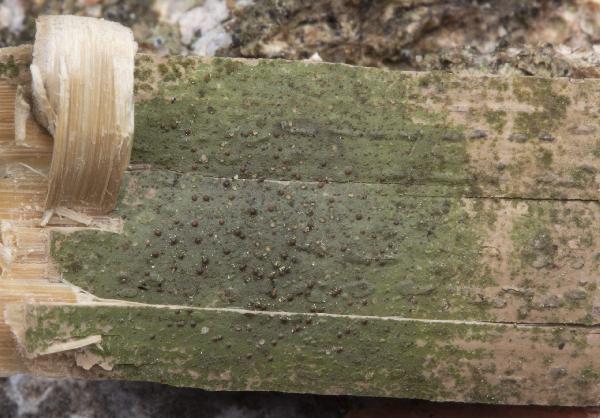
Marta González Garcia - Centro de Estudios Micologicos Asturianos
Spain, Jaizkíbel (Guipúzcoa), 8-VI-2023, sobre plantas de la subfamilia Bambusoideae, leg. R. Pino-Bodas & M. Prieto, det. M. González, MGG-30.
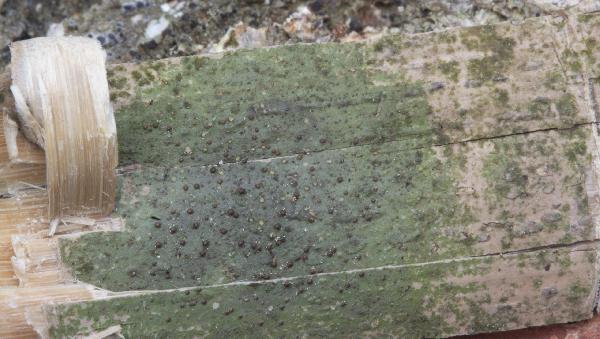
Marta González Garcia - Centro de Estudios Micologicos Asturianos
Spain, Jaizkíbel (Guipúzcoa), 8-VI-2023, sobre plantas de la subfamilia Bambusoideae, leg. R. Pino-Bodas & M. Prieto, det. M. González, MGG-30.
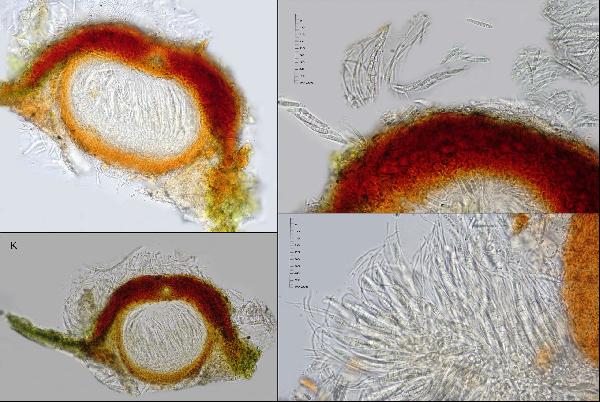
Marta González Garcia - Centro de Estudios Micologicos Asturianos
Spain, Jaizkíbel (Guipúzcoa), 8-VI-2023, sobre plantas de la subfamilia Bambusoideae, leg. R. Pino-Bodas & M. Prieto, det. M. González, MGG-30.
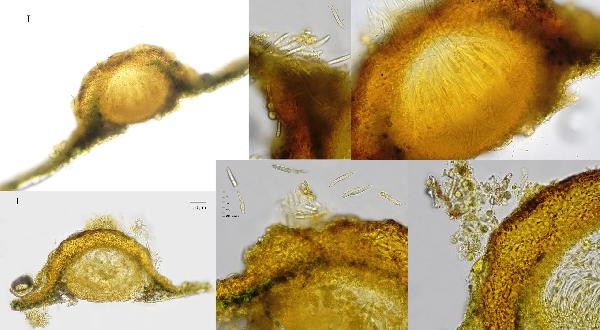
Marta González Garcia - Centro de Estudios Micologicos Asturianos
Spain, Jaizkíbel (Guipúzcoa), 8-VI-2023, sobre plantas de la subfamilia Bambusoideae, leg. R. Pino-Bodas & M. Prieto, det. M. González, MGG-30.
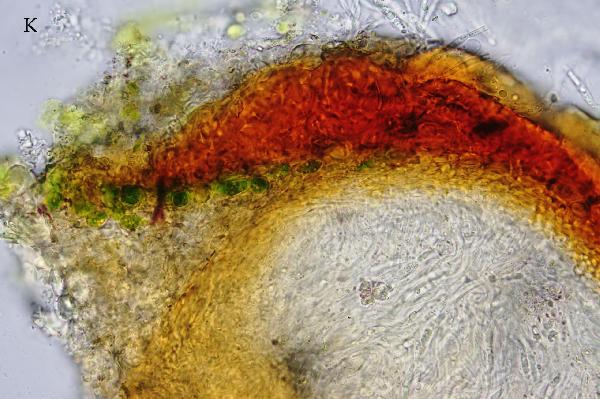
Marta González Garcia - Centro de Estudios Micologicos Asturianos
Spain, Jaizkíbel (Guipúzcoa), 8-VI-2023, sobre plantas de la subfamilia Bambusoideae, leg. R. Pino-Bodas & M. Prieto, det. M. González, MGG-30.
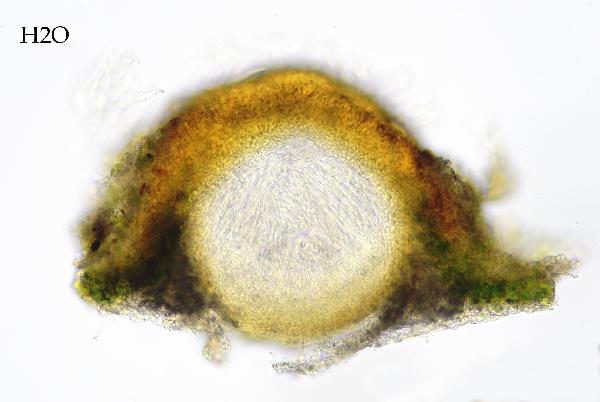
Marta González Garcia - Centro de Estudios Micologicos Asturianos
Spain, Jaizkíbel (Guipúzcoa), 8-VI-2023, sobre plantas de la subfamilia Bambusoideae, leg. R. Pino-Bodas & M. Prieto, det. M. González, MGG-30.
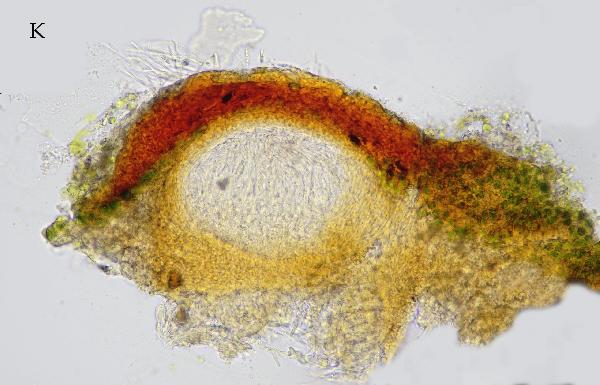
Marta González Garcia - Centro de Estudios Micologicos Asturianos
Spain, Jaizkíbel (Guipúzcoa), 8-VI-2023, sobre plantas de la subfamilia Bambusoideae, leg. R. Pino-Bodas & M. Prieto, det. M. González, MGG-30.
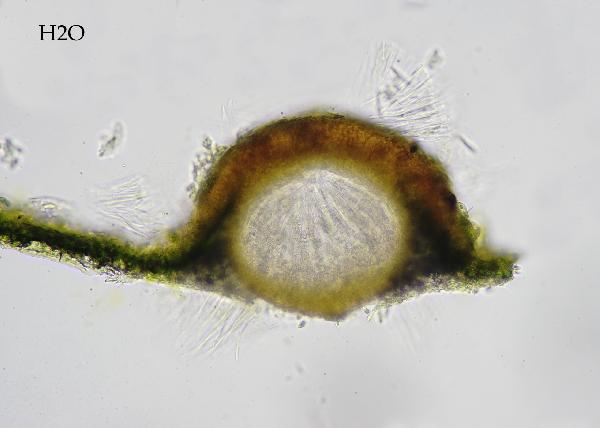
Marta González Garcia - Centro de Estudios Micologicos Asturianos
Spain, Jaizkíbel (Guipúzcoa), 8-VI-2023, sobre plantas de la subfamilia Bambusoideae, leg. R. Pino-Bodas & M. Prieto, det. M. González, MGG-30.
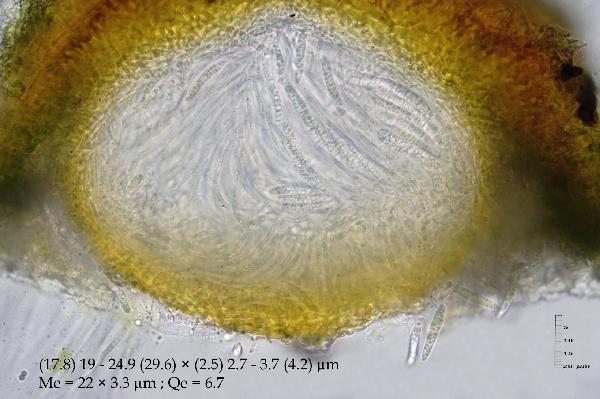
Marta González Garcia - Centro de Estudios Micologicos Asturianos
Spain, Jaizkíbel (Guipúzcoa), 8-VI-2023, sobre plantas de la subfamilia Bambusoideae, leg. R. Pino-Bodas & M. Prieto, det. M. González, MGG-30.
Growth form: Crustose
Substrata: bark and leaves
Photobiont: Trentepohlia
Reproductive strategy: mainly sexual
Most common in areas with a humid-warm climate (e.g. most of Tyrrenian Italy)
Commonnes-rarity: (info)
Alpine belt: absent
Subalpine belt: absent
Oromediterranean belt: absent
Montane belt: very rare
Submediterranean belt: absent
Padanian area: absent
Humid submediterranean belt: extremely rare
Humid mediterranean belt: extremely rare
Dry mediterranean belt: absent

Predictive model
| Herbarium samples |

Jacques Haine - Source: http://www.lichensmaritimes.org/index.php?task=fiche&lichen=609&lang=en
France, Ardennes

Jacques Haine - Source: http://www.lichensmaritimes.org/index.php?task=fiche&lichen=609&lang=en
France, Ardennes

Jacques Haine - Source: http://www.lichensmaritimes.org/index.php?task=fiche&lichen=609&lang=en
France, Ardennes

Jacques Haine - Source: http://www.lichensmaritimes.org/index.php?task=fiche&lichen=609&lang=en
France, Ardennes

Jacques Haine - Source: http://www.lichensmaritimes.org/index.php?task=fiche&lichen=609&lang=en
France, Ardennes

Jacques Haine - Source: http://www.lichensmaritimes.org/index.php?task=fiche&lichen=609&lang=en
France, Ardennes

Ulrich Kirschbaum CC BY-SA 4.0 - Source: https://www.thm.de/lse/ulrich-kirschbaum/flechtenbilder
Central Europe: Germany. (Coll/ident: Eichler/Cezanne).

Ulrich Kirschbaum CC BY-SA 4.0 - Source: https://www.thm.de/lse/ulrich-kirschbaum/flechtenbilder
Central Europe: Germany. (Coll/ident: Eichler/Cezanne).

Marta González Garcia - Centro de Estudios Micologicos Asturianos
Spain, Jaizkíbel (Guipúzcoa), 8-VI-2023, sobre plantas de la subfamilia Bambusoideae, leg. R. Pino-Bodas & M. Prieto, det. M. González, MGG-30.

Marta González Garcia - Centro de Estudios Micologicos Asturianos
Spain, Jaizkíbel (Guipúzcoa), 8-VI-2023, sobre plantas de la subfamilia Bambusoideae, leg. R. Pino-Bodas & M. Prieto, det. M. González, MGG-30.

Marta González Garcia - Centro de Estudios Micologicos Asturianos
Spain, Jaizkíbel (Guipúzcoa), 8-VI-2023, sobre plantas de la subfamilia Bambusoideae, leg. R. Pino-Bodas & M. Prieto, det. M. González, MGG-30.

Marta González Garcia - Centro de Estudios Micologicos Asturianos
Spain, Jaizkíbel (Guipúzcoa), 8-VI-2023, sobre plantas de la subfamilia Bambusoideae, leg. R. Pino-Bodas & M. Prieto, det. M. González, MGG-30.

Marta González Garcia - Centro de Estudios Micologicos Asturianos
Spain, Jaizkíbel (Guipúzcoa), 8-VI-2023, sobre plantas de la subfamilia Bambusoideae, leg. R. Pino-Bodas & M. Prieto, det. M. González, MGG-30.

Marta González Garcia - Centro de Estudios Micologicos Asturianos
Spain, Jaizkíbel (Guipúzcoa), 8-VI-2023, sobre plantas de la subfamilia Bambusoideae, leg. R. Pino-Bodas & M. Prieto, det. M. González, MGG-30.

Marta González Garcia - Centro de Estudios Micologicos Asturianos
Spain, Jaizkíbel (Guipúzcoa), 8-VI-2023, sobre plantas de la subfamilia Bambusoideae, leg. R. Pino-Bodas & M. Prieto, det. M. González, MGG-30.

Marta González Garcia - Centro de Estudios Micologicos Asturianos
Spain, Jaizkíbel (Guipúzcoa), 8-VI-2023, sobre plantas de la subfamilia Bambusoideae, leg. R. Pino-Bodas & M. Prieto, det. M. González, MGG-30.

Marta González Garcia - Centro de Estudios Micologicos Asturianos
Spain, Jaizkíbel (Guipúzcoa), 8-VI-2023, sobre plantas de la subfamilia Bambusoideae, leg. R. Pino-Bodas & M. Prieto, det. M. González, MGG-30.

 INDEX FUNGORUM
INDEX FUNGORUM
 GBIF
GBIF
